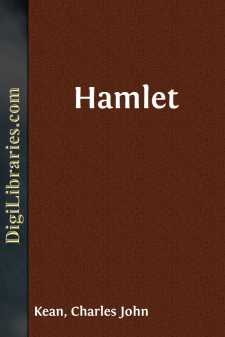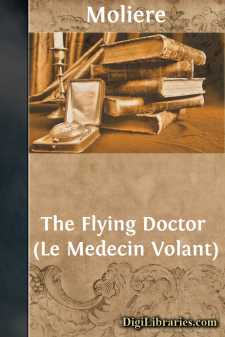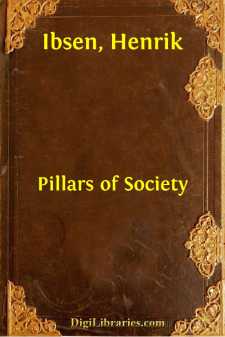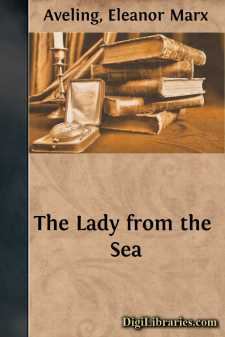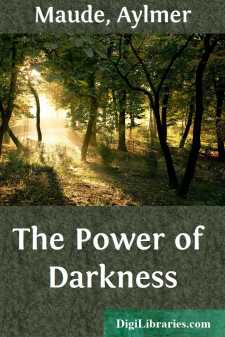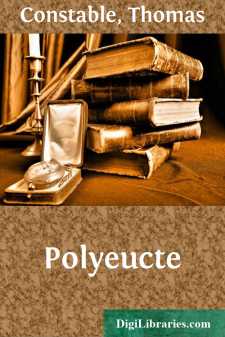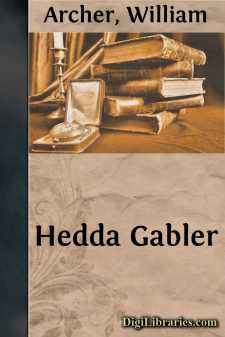Drama
- American 43
- Ancient, Classical & Medieval 45
- Asian 7
- Caribbean & Latin American 2
- Continental European
- English, Irish, Scottish, Welsh 91
- General 105
- Middle Eastern 1
- Religious & Liturgical 1
- Shakespeare 1
Continental European Books
Sort by:
by:
Alexander Dyce
THE TRAGICAL HISTORY OF DOCTOR FAUSTUS FROM THE QUARTO OF 1616. Enter CHORUS. CHORUS. Not marching in the fields of Thrasymene,Where Mars did mate the warlike Carthagens;Nor sporting in the dalliance of love,In courts of kings where state is overturn'd;Nor in the pomp of proud audacious deeds,Intends our Muse to vaunt her heavenly verse:Only this, gentles,—we must now performThe form of...
more...
ACT I. Scene I.—ELSINORE. A Platform before the Castle. Night. Francisco on his post. Enter to him Bernardo, L.H. Ber. Who's there? Fran. (R.) Nay, answer me: stand, and unfold yourself. Ber. Long live the king! Fran. Bernardo? Ber. He. Fran. You come most carefully upon your hour. Ber. 'Tis now struck twelve; get thee to bed, Francisco. Fran. For this relief much thanks: [Crosses to L.]...
more...
by:
Moliere
SCENE I.——VALÈRE, SABINE. Val. Well, Sabine, what do you advise me to do? Sab. I have really much to tell you. My uncle is bent upon marrying my cousin to Villebrequin, and things have gone so far, that I believe the wedding would have taken place to-day if you were not loved by her. However, as my cousin told me the secret of all the love she feels for you, and as we were almost driven to...
more...
by:
Henrik Ibsen
ACT I. (SCENE.--A spacious garden-room in the BERNICKS' house. In the foreground on the left is a door leading to BERNICK'S business room; farther back in the same wall, a similar door. In the middle of the opposite wall is a large entrance-door, which leads to the street. The wall in the background is almost wholly composed of plate-glass; a door in it opens upon a broad flight of steps...
more...
THE LADY FROM THE SEA ACT I (SCENE.—DOCTOR WANGEL'S house, with a large verandah garden in front of and around the house. Under the verandah a flagstaff. In the garden an arbour, with table and chairs. Hedge, with small gate at the back. Beyond, a road along the seashore. An avenue of trees along the road. Between the trees are seen the fjord, high mountain ranges and peaks. A warm and...
more...
ACT I SCENE I (So-called 'Little Hall' in BRAND'S manor-house at Reynistad. Enter the DEACON SIGURD, THOROLF BJARNASON, ALF OF GROF, and EINAR THE RICH, of Vik.) Deacon Sigurd.—Thorolf, Lady Jorun bade you wait here until her husband comes. Thorolf.—Where is Brand Kolbeinsson? I bear a message for him from my Lord Kolbein the Young. Sigurd.—Why comes he not himself? Alf.—Kolbein...
more...
by:
Aylmer Maude
ACT I The Act takes place in autumn in a large village. The Scene represents Peter's roomy hut. Peter is sitting on a wooden bench, mending a horse-collar. AnÃsya and AkoulÃna are spinning, and singing a part-song. PETER [looking out of the window] The horses have got loose again. If we don't look out they'll be killing the colt. NikÃta! Hey, NikÃta! Is the fellow...
more...
by:
Thomas Constable
INTRODUCTORY NOTE Pierre Corneille was born in Rouen in 1606, the son of an official; was educated by the Jesuits, and practised unsuccessfully as a lawyer. His dramatic career began with the comedy of "Melite," but it was by his "Medee" that he first proved his tragic genius. "The Cid" appeared in 1636, and a series of masterpieces followed—"Horace," "Cinna,"...
more...
ACT I SCENE: The stage is divided by an old wall, covered with vines and flowers. At the right, a corner of BERGAMIN's private park; at the left, a corner of PASQUINOT's. On each side of the wall, and against it, is a rustic bench. As the curtain rises, PERCINET is seated on the top of the wall. On his knee is a book, out of which he is reading to SYLVETTE, who stands attentively listening on...
more...
by:
William Archer
From Munich, on June 29, 1890, Ibsen wrote to the Swedish poet, Count Carl Soilsky: "Our intention has all along been to spend the summer in the Tyrol again. But circumstances are against our doing so. I am at present engaged upon a new dramatic work, which for several reasons has made very slow progress, and I do not leave Munich until I can take with me the completed first draft. There is little...
more...



